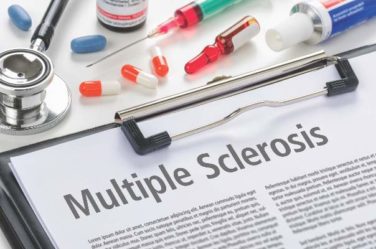AT ASRM 2017
SAN ANTONIO (FRONTLINE MEDICAL NEWS) – Half of premenopausal breast cancer patients who had completed chemotherapy conceived by intercourse alone within 3 months of beginning to attempt conception, a study showed.
This single-center study provides some guidance for women and the physicians caring for them that an attempt at natural conception is worthwhile if ovarian function has returned after chemotherapy, said Nikita Sinha.
Speaking at the annual meeting of the American Society for Reproductive Medicine, Ms. Sinha, a medical student at the University of California, San Francisco, said that this is a worthwhile strategy, “even for patients with limited ovarian reserve, prior to using cryopreserved tissue.” Cytotoxicity of chemotherapy was not associated with decreased chances for conception, she said.
Ms. Sinha and her colleagues designed a prospective cohort study to follow women aged 18-44 years who had been diagnosed with breast cancer and had received a fertility preservation consult. A total of 297 women who had completed cancer treatment were contacted and asked to complete a survey that asked questions about their oncologic and reproductive history. Of these, 200 (67%) completed the survey, but 43 more patients were excluded because they had not received chemotherapy.
Of the remaining 157 women, 40 (25%) attempted to conceive. Return of ovarian function occurred in 36 of the 40 women (90%). Of these 36 women, 4 also began their attempts to conceive with assisted reproductive technology (ART) because of age, previous history of infertility, or a preimplantation genetic diagnosis of the BRCA mutation. Thus, a total of eight patients (20%) first attempted to conceive with ART.
Three-fourths of women in both groups had eggs or embryos cryopreserved before their chemotherapy. In the ART group, a total of five women (62.5%) became pregnant: One first attempted intrauterine insemination and became pregnant; two first attempted pregnancy by egg donation, and one became pregnant; and three of five women who attempted embryo transfer from cryopreserved eggs or embryos became pregnant.
Of the 32 women who first attempted to conceive by intercourse, 18 became pregnant after 3 months, and 16 women had a live birth, for a 50% live birth rate for this group. Of the remaining 14 women who did not become pregnant by intercourse, 8 went on to attempt conception by ART.
Of these eight women, intrauterine insemination was attempted by three, with two resulting pregnancies. The single patient who used letrozole became pregnant. Of the four patients who attempted frozen embryo transfer, two became pregnant, for a total of five pregnancies (62.5%).
Comparing the 18 women who became pregnant with the 14 women who did not, Ms. Sinha and her colleagues found no significant differences in age, parity, hormone receptor status, pre- or postchemotherapy antral follicle count, type of chemotherapy, or time since chemotherapy. Receiving leuprolide acetate during therapy was not a significant factor.
Of the patients who became pregnant, 2 of 28 (7%) have had a recurrence of their breast cancer; both of these patients are estrogen receptor positive, said Ms. Sinha. One of the 12 patients who didn’t become pregnant also has had a recurrence; she is estrogen receptor negative.
In this study, the winnowing process of patient selection resulted in a limited sample size, with the potential for selection bias, said Ms. Sinha. Data collection is ongoing for breast cancer patients who receive fertility preservation consultations at her facility, she said.
The women trying to conceive were, on average, 37 years old at their initial attempt at conception, and had completed chemotherapy about 4 years ago. Most patients received cytotoxic chemotherapy, and 25 (63%) had estrogen receptor–positive cancer.
Previous work had shown that up to 80% of women of reproductive age will have some ovarian function resume after treatment with gonadotoxic chemotherapy agents, said Ms. Sinha.
However, the fertility risk for cancer survivors is twofold, said Ms. Sinha. “While acute ovarian failure is a well-known risk, there remains an increased risk of early menopause despite resumption of menses, especially in younger aged women” who are cancer survivors, she said.
Ms. Sinha reported that her work was supported by the University of California, San Francisco Clinical and Translational Science Institute.
On Twitter @karioakes



